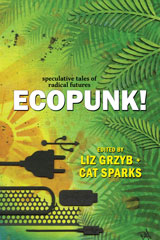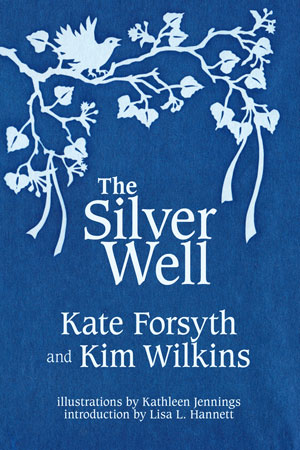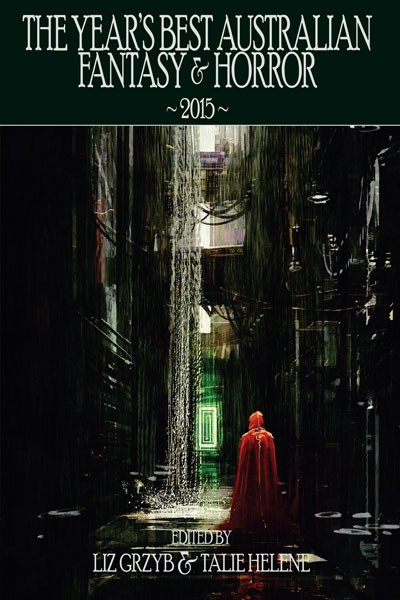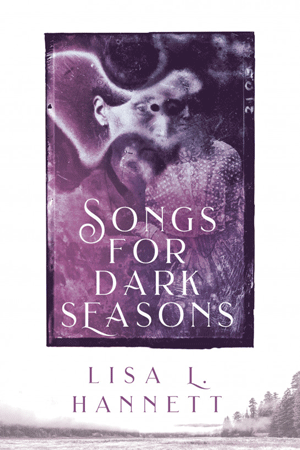 It's been a while between titles, but we're overjoyed to announce our latest release. An incredible new collection of stories from the multiple award-winning and absolutely awesome Lisa L. Hannett.
It's been a while between titles, but we're overjoyed to announce our latest release. An incredible new collection of stories from the multiple award-winning and absolutely awesome Lisa L. Hannett.
With a twang in its heart and a song for luck on its tongue, Songs for Dark Seasons takes readers back to the lonesome dream counties introduced in the World Fantasy Award-nominated collection, Bluegrass Symphony.
Trailer parks and graves are only temporary homes for souls in these tales, where gods dwell in churches and parking lot groves. Friday night football stars mingle with sirens; hunters’ wives help their kids not to shoot, but to fly; Chanticleers spar their way into local government; and rash-afflicted men take dryads for lovers. In backwater towns, some witches have the know-how to pin pageant queens pretty, while others relieve girls of highfalutin aspirations. Local crow-boys and bloodthirsty Ursines are the best miners around.
In these thirteen stories, forests are imbued with the deepest, saddest strains of country music, cornfield horizons stretch as long as a lone fiddle’s wail, and distant hills make mandolin promises: sweet and catchy and short-lived.
With an introduction by World Fantasy Award-winning writer Helen Marshall.
Cover by Vince Haig.
We're please to have picked up a few nominations in the 2017 Aurealis Awards list just announced!
Each of our 2017 titles picked up at least one nomination. A very huge congratulations to
The Silver Well, by Kate Forsyth and Kim Wilkins
- Best collection
- Best fantasy novella, "The Cunning Woman's Daughter"
Ecopunk! edited by Liz Grzyb and Cat Sparks
- Best science fiction novella, "The Wandering Library", D.K. Mok
- Best science fiction novella, "Island Green", Shauna O'Meara
The Year's Best Australian Fantasy and Horror 2015, edited by Liz Grzyb and Talie Helene
- Best anthology
In addition, a number of writers we've previously published are nominated, including Lisa L. Hannett, Angela Slatter, Kaaron Warren, Alan Baxter, and Cat Sparks, and huge congratulations to them! We'd like to congratulate all of the nominees of this year's awards, the full list is at https://aurealisawards.org/2018/02/15/2017-aurealis-awards-shortlist-announcement/. The winners will be announced in April.
And if you're looking to buy our award-nominated books, you can find them at:
- The Silver Well http://bookshop.ticonderogapublications.com/product/the-silver-well/
- Ecopunk! http://bookshop.ticonderogapublications.com/product/ecopunk/
- The Year's Best Australian Fantasy and Horror 2015 http://bookshop.ticonderogapublications.com/product/the-years-best-australian-fantasy-and-horror-2015-volume-6/
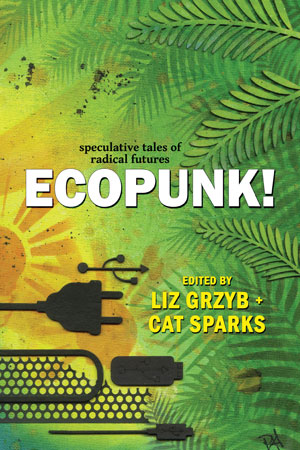
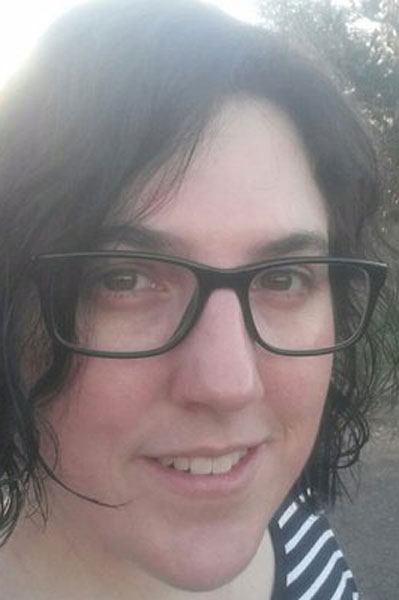
Over coming weeks we'll have a series of mini interviews ("minterviews" if you will) with some of the awesome writers in our forthcoming Ecopunk! (order it at http://bookshop.ticonderogapublications.com/product/ecopunk/)
Next up is Shauna O'Meara. Shauna is an Aurealis nominated writer based in Canberra, Australia. She was a winner of the 2014 Writers of the Future contest and a finalist in the 2016 Aurealis Awards and her short stories have appeared in Interzone, Cosmos magazine, Writers of the Future, Everything Change and several Australian anthologies including In Your Face, Next and The Never Never Land. She is on Twitter at @OMearaShauna and you can find her at theshaunacorner.wordpress.com
1. Tell us a little about your Ecopunk! story, and the inspiration behind it.
"Island Green" is a science experiment in the form of a televised gameshow whereby three teams of scientists compete to render productive the salinated land and depleted reef of a former resort island off the coast of Malaysia.
In this future, climate alteration has decreased worldwide land and sea productivity through a multitude of means, resulting in significant food shortage and the mass displacement of people. My story looks at restoring food production to damaged landscapes and proposes a range of production, environmental and societal factors that might be considered in a multicultural world where one solution may not fit all.
The idea was kindled by articles I read for another cli-fi project, that described the many ways in which climate change could negatively impact the productivity of fertile land (one of these being soil salination caused by sea-level rise and hurricane storm surge events). Loss of soil productivity is a topic close to my heart because of the place I grew up: wheatbelt Western Australia. Here, decades of clearing have resulted in such severe water table rise that salt now crystallises in dead, glittering lakes on land that was once an agricultural food-bowl. Millions are currently being spent trying to undo the salt damage as acres lie fallow and farmers are forced to walk off the land.
As for making the plot a gameshow: that was a by-product of my love for the ultimate island gameshow, Survivor.
2. What science fictional technology do you wish we had now?
While I love the concept of generation ships (and stargate wormholes and warp drives), I would prefer technologies targeted at the leaving of Earth to be just a bonus to our adventurous, outward seeking species rather than a necessity caused by our ruination of this world. As such, I wish progressive SF cities of the future were the cities of now with sustainable, clean power, upward growth instead of outward expansion, and full citywide integration of our food production practices in the form of towering vertical farms, meat labs and roof-top gardens. That way, human populations might be sustained and housed without encroachment, pollution and disruption of the natural world that is left.
3. With all these scary climate events happening at the moment, it's sometimes hard to see some light. What gives you the most hope for humanity and the world?
That there are still people out there doing research, often against the odds and, particularly in the case of climate change science, against a backdrop of political and corporate hostility: underfunded, time-consuming, results-not-guaranteed hard science, simply because they have a drive and a passion to know more, and to find solutions.
--
Ecopunk! - speculative tales of radical futures contains 19 optimistic tales, selected by two award-winning editors, showing how humanity can survive and flourish, despite the looming uncertainty from climate change. The incredible line-up includes some of Australia's best science fiction writers. Order it at http://bookshop.ticonderogapublications.com/product/ecopunk/

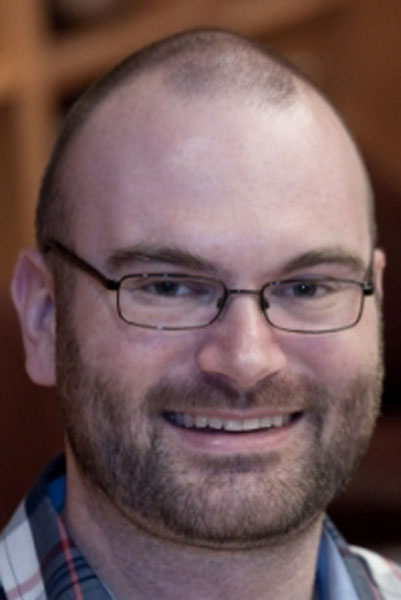
Over coming weeks we'll have a series of mini interviews ("minterviews" if you will) with some of the awesome writers in our forthcoming Ecopunk! (order it at http://bookshop.ticonderogapublications.com/product/ecopunk/)
Next up is Jason Fischer. Jason is an award-winning Adelaide-based author. He has published dozens of short stories, with an optioned TV show, a novel, a short story collection, comics and computer game work also under his belt. He enjoys competition karaoke, and loves puns more than life itself.
1. Tell us a little about your Ecopunk! story, and the inspiration behind it.
I'm mad for Australian megafauna, and when Cat sent me the guidelines for Ecopunk, I had a half-baked idea for the resurrection of the Diprotodon. I envisaged a future world where global warming has lifted sea-levels to the point that there is once more an inland sea in Australia. In one positive, this has enabled the easy irrigation of central Australia with desalination technology. Another story nugget I was sitting on for a while was the time that the Kimberley region was seriously set aside as a potential homeland for the displaced Jewish people. While this never happened in the real world, I looked at what might happen if World War 1 never kicked off. Colonialism is still rife in my story, and all the old alliances still hold. Add an alternative Hitler timeline, shake vigorously, and allow to settle to room temperature before serving.
2. What science fictional technology do you wish we had now?
All the technology I love already exists, and simply needs to be implemented in this oil-drunk world. I'd love to see the dry interior of Australia farmed for agave cacti, with the view to turning this into a stable source of bio-fuel (and alcohol). Coupled with a stable delivery system for hydrogen (which embrittles metals and tanks, making it hard to transport) and an increase in solar and wind energy use. Home-based batteries and local LPG production plants (so like a gas water-heater but generating all of your houses's power needs) would eliminate the need for massive power plants, supply and demand issues etc.
3. With all these scary climate events happening at the moment, it's sometimes hard to see some light. What gives you the most hope for humanity and the world?
I've written a lot of fiction dealing with what happens when everything goes toe up. The apocalypse, Mad Max, yadda yadda :-) In reality, people are basically okay, if self-serving and short-visioned. There will be a time soon when the oil runs out. That's okay. That will be the time that alternative fuels and energies come into play. This will also be the time that mining the Moon and Mars will become feasible, and necessity will force humanity back into space. Hopefully by then we will be less awful at looking after the places we live, and won't just traipse across the universe, dumping Styrofoam and coffee pods wherever we go.
--
Ecopunk! - speculative tales of radical futures contains 19 optimistic tales, selected by two award-winning editors, showing how humanity can survive and flourish, despite the looming uncertainty from climate change. The incredible line-up includes some of Australia's best science fiction writers. Order it at http://bookshop.ticonderogapublications.com/product/ecopunk/

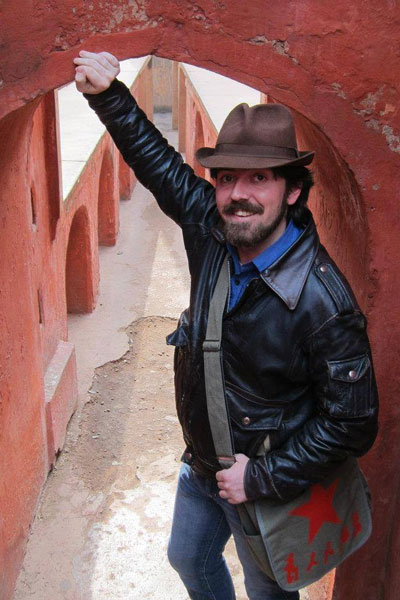
Over coming weeks we'll have a series of mini interviews ("minterviews" if you will) with some of the awesome writers in our forthcoming Ecopunk! (order it at http://bookshop.ticonderogapublications.com/product/ecopunk/)
Next up is R Jean Mathieu. R. Jean was once voted "most likely to phone his friends from a rooftop in Guatemala asking if anyone knows how to pilot a helicopter in a hurry". He graduated with his BA in Sociology (with a minor in Business) from Northeastern University in Boston while pouring tea in Zhuhai. He lives in California with his wife, where they attend her synagogue on Saturdays and his Quaker meeting on Sundays, spending the rest of the week exchanging flurries of tender cursing and furious affections in French, Cantonese, and Hebrew. He can be reached at rjeanmathieu.com.
1. Tell us a little about your Ecopunk! story, and the inspiration behind it.
When I was a boy, I happened to get a copy of The Kids' Whole Future Catalog, which was The Future! as seen by 1980s West Coast hippies. I fell in love, obviously. One of the most intriguing ideas in it, at least to me, was "seacrete" -- inducing coral accretion to wire mesh to create beautiful underwater structures stronger than concrete and attracting fish besides. I never got around to building any of the underwater statues I'd planned, but the idea always stuck with me, popping up in the background of various stories. And then Ladli came along, with my old set of plans for underwater statuary, and pointed out the more utilitarian uses, and that they did not preclude aesthetic enjoyment or even spiritual enlightenment. And I sat down and let her talk...
2. What science fictional technology do you wish we had now?
I studied sociology in college, and once upon a time was to become a doctor of anthropology. This means I tend to think of "technology" as more than just nuts and bolts and glowing warp-cores, but rather including mindfulness meditation, and multinational empire, and marketing. People don't fundamentally change, so you can't start by improving them -- but what does change is how those people are arrayed, and the relationships between them, and that is something you can improve. So the science fictional technology I most wish we had now would be a perfected satyagraha, the coalition-building nonviolence that absorbs revolutionary fervor, channels it to the least necessary force, and leaves stable democratic forms in its wake. It's the operating principle just offscreen in the United Federation of Planets and all its' imitators, it's how those benevolent governments and cashless cooperatives scattered across the utopias come together and keep working together without falling into anarchy, autocracy, or authoritarianism. With such a tradition, with such a social technology, we could start saving the world.
3. With all these scary climate events happening at the moment, it's sometimes hard to see some light. What gives you the most hope for humanity and the world?
3. This is going to sound strange coming from a science fiction writer, but I find the most hope in my traditions. My father's people are French-Canadian, and there's something in the foot-stamping of neo-trad and the homey comfort of soup aux pois and the bonfires of St. Jean Baptiste day and the vulnerable power of the Quiet Revolution and the poetry of Fontaine's Fables and the terror of the loup-garou and the sheer, stubborn, phlegmatic gall of a people who carry on being French while surrounded by both their Anglophone conquerors and nine months of winter that fills me with pride and with hope. There is a power in Survivance that not only survives winter, but defies it, and lights fires and stamps feet defiantly against it, and that stubborn Survivance infuses innovation and resilience with the strength to make a difference.
--
Ecopunk! - speculative tales of radical futures contains 19 optimistic tales, selected by two award-winning editors, showing how humanity can survive and flourish, despite the looming uncertainty from climate change. The incredible line-up includes some of Australia's best science fiction writers. Order it at http://bookshop.ticonderogapublications.com/product/ecopunk/

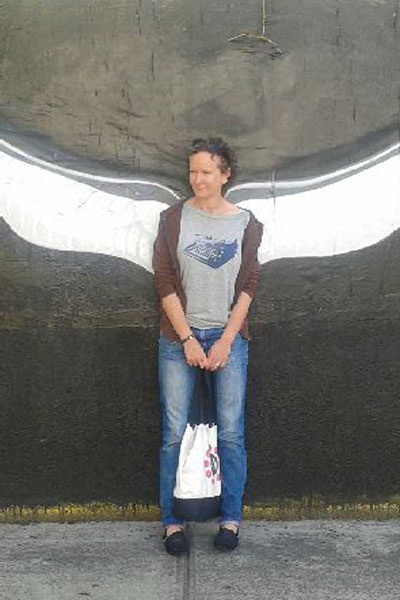
Over coming weeks we'll have a series of mini interviews ("minterviews" if you will) with some of the awesome writers in our forthcoming Ecopunk! (order it at http://bookshop.ticonderogapublications.com/product/ecopunk/)
Next up is Jane Rawson. Jane writes novels, novellas, stories and non-fiction, mostly about the environment. Her latest novel is From the Wreck.
1. Tell us a little about your Ecopunk! story, and the inspiration behind it.
"The right side of history" is set in a future Australia, where the world has decided to concentrate human habitat to leave a bit more space for other species. Humans can choose between moving to a super-high-density, well-designed urban area, or having their mind transferred into the body of a native species. This story is about a long-married couple who come to realise they have very different ideas about how best to help the planet. I was inspired to write it by a recent WWF report showing how the expansion of human habitat has killed off half of all wild animals in the world (80% of the Earth's landmass is now human habitat to a greater or lesser extent). That led me to the information that if you weighed all the vertebrate land animals (including us), only 3% of that total weight is wild animals. Wild animals are almost gone, and in his book Half Earth, EO Wilson suggests that the only way to remedy this is to dedicate half of the earth's landmass to wild animal habitat.
2. What science fictional technology do you wish we had now?
I wish we had microwaves that would heat soup evenly, and mobile/VOIP phones where you could hear clearly what the person on the other end is saying at all times. But I know that's crazy talk.
3. With all these scary climate events happening at the moment, it's sometimes hard to see some light. What gives you the most hope for humanity and the world?
Honestly, I'm not brimming over with hope. But of course whatever happens, life in some form will continue on. Octopuses are doing well. There's a bright future for algae. Evolution will continue and new lifeforms will take over the planet. It just might take a while.
--
Ecopunk! - speculative tales of radical futures contains 19 optimistic tales, selected by two award-winning editors, showing how humanity can survive and flourish, despite the looming uncertainty from climate change. The incredible line-up includes some of Australia's best science fiction writers. Order it at http://bookshop.ticonderogapublications.com/product/ecopunk/

Over coming weeks we'll have a series of mini interviews ("minterviews" if you will) with some of the awesome writers in our forthcoming Ecopunk! (check it out on kickstarter http://kck.st/2xGeJ9x)
Next up is DK Mok. DK is a fantasy and science fiction author whose novels include Squid’s Grief and Hunt for Valamon. DK has been shortlisted for four Aurealis Awards, two Ditmars and a WSFA Small Press Award. DK graduated from UNSW with a degree in Psychology, pursuing her interests in both social justice and scientist humour. DK lives in Sydney, Australia, and her favourite fossil deposit is the Burgess Shale.
1. Tell us a little about your Ecopunk! story, and the inspiration behind it.
I love libraries. As a child, my local libraries were enchanted places full of wonder and adventure. In high school, libraries were my sanctuary, where I found solace, inspiration and fuel for my curiosity. Now, libraries are still a crucial source of information and creative sustenance for me.
A few years ago, I came across a book called Improbable Libraries by Alex Johnson. And it was here that I learned of the Biblioburro.
Under a chapter entitled ‘Animal Libraries’, I learned of primary school teacher Luis Soriano and his two donkeys, carrying books to remote communities in Colombia. I learned of an elephant called Boom-Boom, bringing fairy tales and dinosaur books to children in Laos; camel libraries in Kenya; Donkey Drawn Libraries in Zimbabwe; nomadic writers on reindeer in Mongolia. All over the world, there are passionate people braving deserts, storms and bandits to bring books to children in isolated communities.
My story, "The Wandering Library", was inspired by these heroic champions of literacy and education. It follows the journey of Lani Bashir, a travelling librarian, as she navigates a world transformed by rising seas and genetically modified creatures, visiting communities powered by sun, wind, sea and cheese.
2. What science fictional technology do you wish we had now?
Airships! Giant solar-powered airships! I love the idea of floating hotels, airborne villages, flying hospitals. Airships are great because the vertical lift-off and landing means they’re not reliant on runways, roads or ports, so previously inaccessible areas are much easier to reach. They’re also readily scalable, so theoretically you could have a tiny flying library or a sprawling floating city.
I think this technology could be transformative: imagine dropping fully equipped, fully staffed hospitals into epidemic hot-zones; or shipping entire camps of emergency housing, food and aid workers into -- or out of -- disaster-hit regions; or travelling museums and galleries visiting remote communities.
We already have most of the technology, and while speed of travel is a limiting factor, I’d love to see airships become a sustainable form of transport in the near future.
3. With all these scary climate events happening at the moment, it's sometimes hard to see some light. What gives you the most hope for humanity and the world?
I draw inspiration from those who are taking action to make the world a better place -- and there are plenty of them. From humanitarian organisations like Malala Fund, working to ensure that every girl has access to quality education, to high-tech companies like BioCarbon Engineering, restoring ecosystems on an industrial scale with the use of tree-planting aerial drones. From activists like ClientEarth, using environmental law to hold governments to account, to science literacy programs like Skype a Scientist, connecting disadvantaged students around the world to diverse, working scientists. And the list goes on.
Look locally, and you’ll find people supporting libraries and knowledge centres, community solar projects, and waste reduction initiatives; people pushing their local governments for greater sustainability, more energy independence, more green space.
If you want a regular dose of innovation and activism, I highly recommend podcasts like Science Friday, BBC Click Radio, and BBC People Fixing the World. Be inspired, and then take action. Because hope arises from taking action.
--
Ecopunk! - speculative tales of radical futures contains 19 optimistic tales, selected by two award-winning editors, showing how humanity can survive and flourish, despite the looming uncertainty from climate change. The incredible line-up includes some of Australia's best science fiction writers.

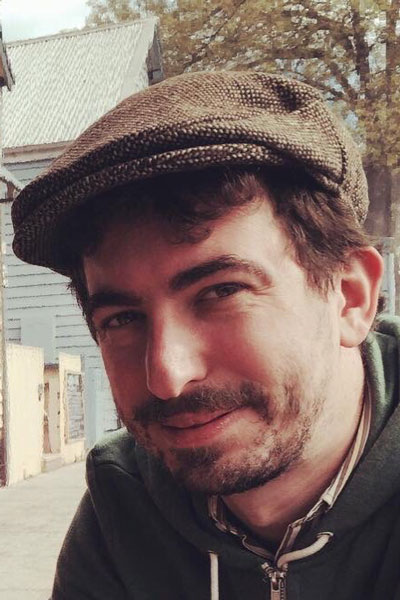
Over coming weeks we'll have a series of mini interviews ("minterviews" if you will) with some of the awesome writers in our forthcoming Ecopunk! (check it out on kickstarter http://kck.st/2xGeJ9x)
Next up is Thomas Benjamin Guerney. Thomas is a writer living in Melbourne. He was a co-founder of The Lifted Brow, and that's where most of his work was published for a while -- mostly things like epic poems and 150 limericks about countries of the world. His 80-minute recorded and voice-acted-out post-apocalyptic poem Valcapella and Dwinn was called an "epic of heartbreak and awesomeness" by Daniel Handler (a.k.a. Lemony Snicket).
1. Tell us a little about your Ecopunk! story, and the inspiration behind it.
My story "The Mangrove Maker" is about Donna, a woman who creates synthetic mangroves to replace their natural counterparts dying from an incurable blight. The synthetics also use artificial photosynthesis to create a source of energy both beautiful and sustainable. However, her project is under threat from the big renewables: all gleaming and hard-edged efficiency, operating out of kilometre-tall arcology under the leadership of Donna’s ex husband. For Donna to succeed, she’ll have to face a part of her life she’d hoped was left far behind her.
I was inspired to tell a story that was both small and with emotional truth in a world of imagined future green technology. I hoped by focussing on the minutiae of this future world and its everyday relationships and conflicts, I could make that world, a sustainable world, seem as real as possible.
2. What science fictional technology do you wish we had now?
I just want to live in Iain M Banks’s Culture. Living in a hedonistic post-scarcity society where all material wishes can be fulfilled, but still getting to maintain a level of moral and philosophic superiority, seems just great. Can we have that?
3. With all these scary climate events happening at the moment, it's sometimes hard to see some light. What gives you the most hope for humanity and the world?
There’s a whole bunch of people out there doing wonderful, selfless things for the benefit of humanity and the world. They do things like fly into conflict zones and give volunteer medical assistance, or develop technology to clean up the oceans, or organise soccer teams to help newly resettled refugees find their feet in new communities. As a writer, I’m mainly interested in their personal problems, so I’m not much help, but these people are really out there, and they give me hope.
--
Ecopunk! - speculative tales of radical futures contains 19 optimistic tales, selected by two award-winning editors, showing how humanity can survive and flourish, despite the looming uncertainty from climate change. The incredible line-up includes some of Australia's best science fiction writers.

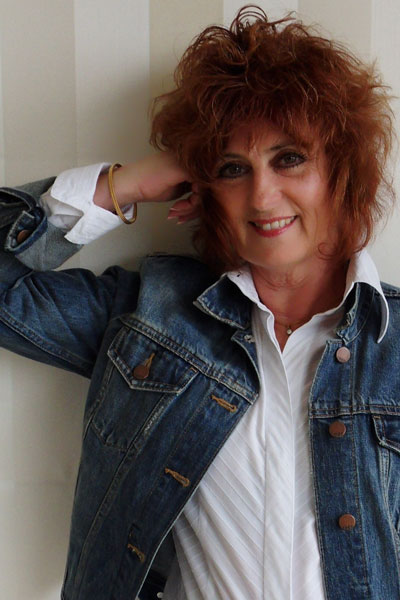
Over coming weeks we'll have a series of mini interviews ("minterviews" if you will) with some of the awesome writers in our forthcoming Ecopunk! (check it out on kickstarter http://kck.st/2xGeJ9x)
Next up is Janeen Webb. Janeen is a multiple award winning author, editor and critic who has written or edited ten books and over a hundred essays and stories. Her short story collection, Death At The Blue Elephant, was short listed for the 2015 World Fantasy Award. Janeen is a recipient of the World Fantasy Award, the Peter MacNamara SF Achievement Award, the Aurealis Award, and the Ditmar Award. She holds a PhD in literature from the University of Newcastle, and divides her time between Melbourne and a small farm overlooking the sea near Wilson's Promontory, Australia.
1. Tell us a little about your Ecopunk! story, and the inspiration behind it.
I'm sitting in a Melbourne cafe, sipping my usual latte, trying to imagine a world without coffee - uncomfortably aware that the sheer volume of water it takes to produce a single cup could well render coffee crops unsustainable in a post climate-change environment. My Ecopunk! story, "Monkey Business", turns on the defence of just such a crop, but it's not just about the coffee - it's about the escalating conflict between food security and bio diversity.
"Monkey Business" begins when Brunelli - coffee lover, kick-ass woman warrior, wildlife defender par excellence - rescues a baby capuchin monkey in the course of her battle protect a precious patch of rainforest against systematic deforestation. The inspiration for this scenario is partly autobiographical, in that, when I lived in South-East Asia, I adopted and raised an orphaned baby gibbon (the smallest of the apes), whose mother had died in just such a circumstance. It also stems from my growing sense of alarm that ongoing habitat destruction is pushing so many creatures - including the gentle orang utans - to the brink of extinction. I don't want to imagine a world without them. But I have no illusions about the probable outcome - in a neo-liberal global economy, money always wins: the trick will be to find a way to make the production of the cash crops that are so valuable to private businesses contingent upon the survival of bio diverse wildlife. It's worth a try. That's where Brunelli comes in ....
2. What science fictional technology do you wish we had now?
There are so many things I wish we had. What happened to the personal jet packs we were promised when we were kids? But the thing I most long for is a time machine - or at least a reliable matter transmitter, or a variation on the sf technology that would provide instantaneous transport. I think about it every time I join the queue for yet another expensive, exhausting long haul flight. There's never a time machine when you need one. And I need one.
3. With all these scary climate events happening at the moment, it's sometimes hard to see some light. What gives you the most hope for humanity and the world?
At a time when our leaders are governing more for the party room than for the people, it's the people who give me hope. It's the grass roots movements we see everywhere, the vibrant responses of people who value life in all its myriad forms: the people who give their time to providing humanitarian aid, to wildlife rescue, to gardening heirloom crops and creating seed banks. If a group of amateur astronomers can find a new planet (and they did), maybe, collectively, we can find a way to save this one.
--
Ecopunk! - speculative tales of radical futures contains 19 optimistic tales, selected by two award-winning editors, showing how humanity can survive and flourish, despite the looming uncertainty from climate change. The incredible line-up includes some of Australia's best science fiction writers.


